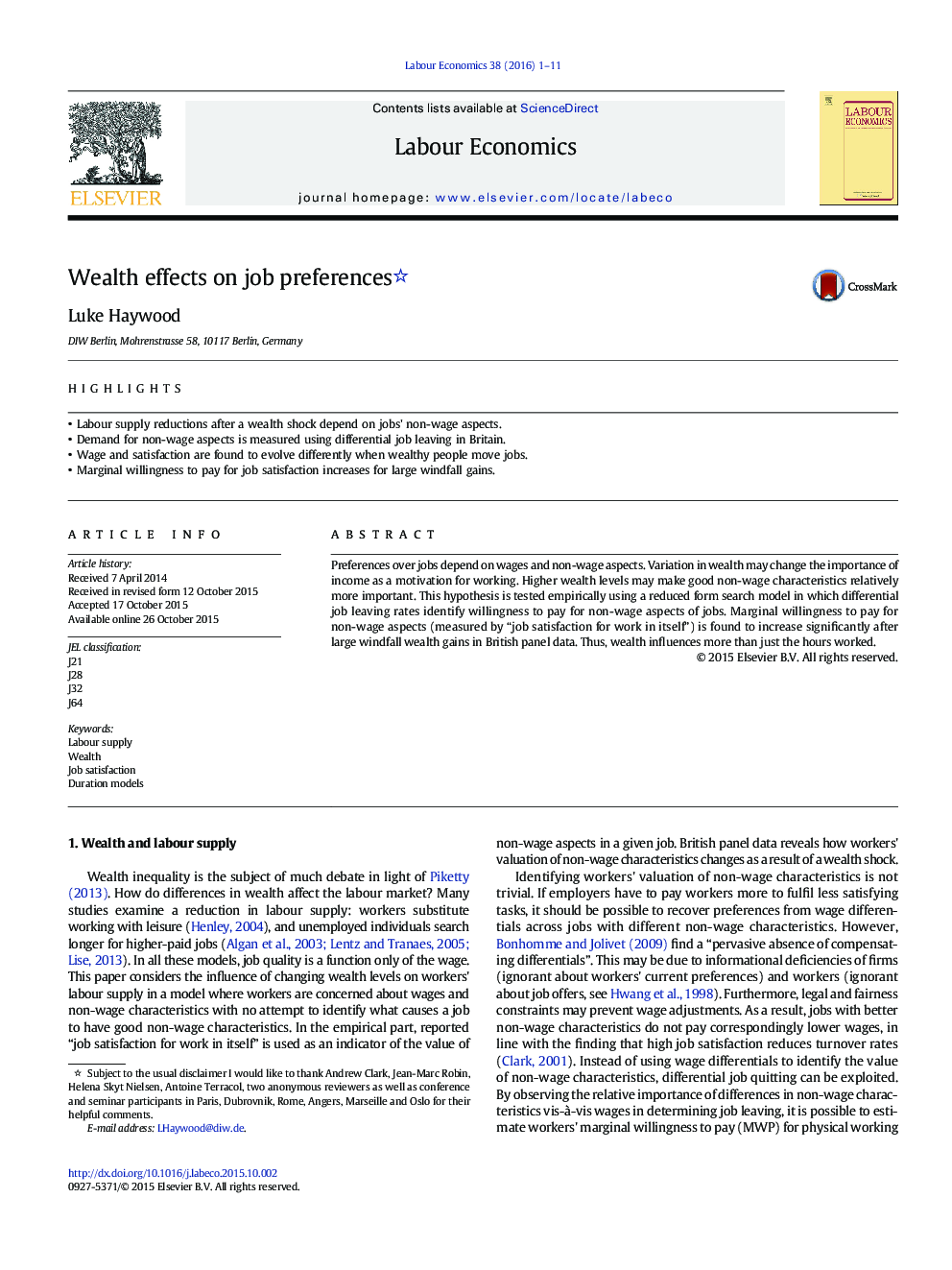| Article ID | Journal | Published Year | Pages | File Type |
|---|---|---|---|---|
| 971671 | Labour Economics | 2016 | 11 Pages |
•Labour supply reductions after a wealth shock depend on jobs' non-wage aspects.•Demand for non-wage aspects is measured using differential job leaving in Britain.•Wage and satisfaction are found to evolve differently when wealthy people move jobs.•Marginal willingness to pay for job satisfaction increases for large windfall gains.
Preferences over jobs depend on wages and non-wage aspects. Variation in wealth may change the importance of income as a motivation for working. Higher wealth levels may make good non-wage characteristics relatively more important. This hypothesis is tested empirically using a reduced form search model in which differential job leaving rates identify willingness to pay for non-wage aspects of jobs. Marginal willingness to pay for non-wage aspects (measured by “job satisfaction for work in itself”) is found to increase significantly after large windfall wealth gains in British panel data. Thus, wealth influences more than just the hours worked.
